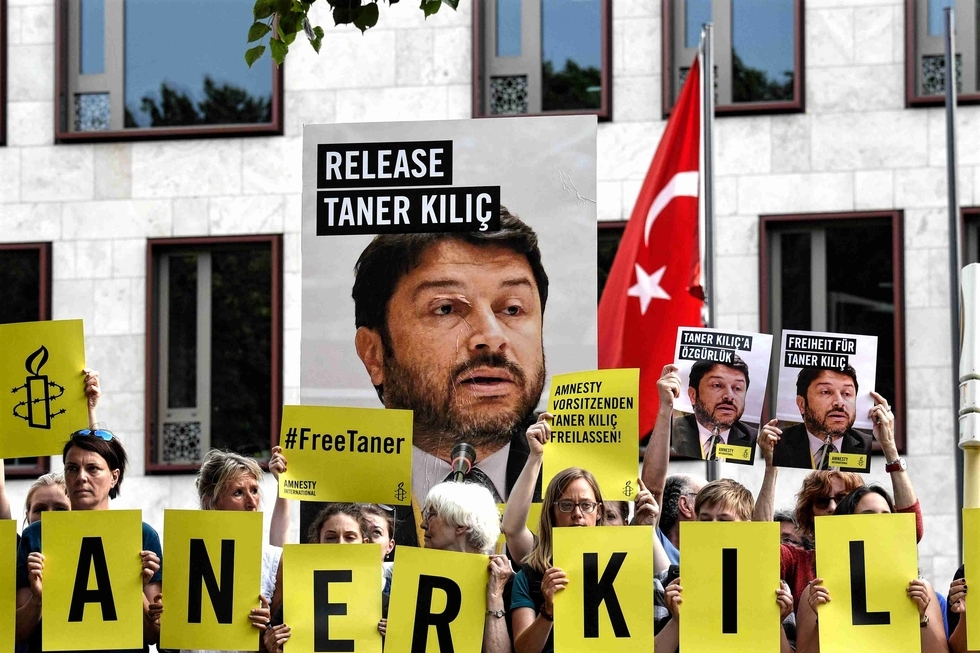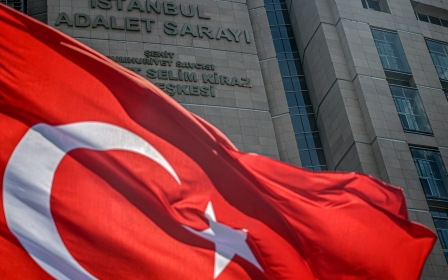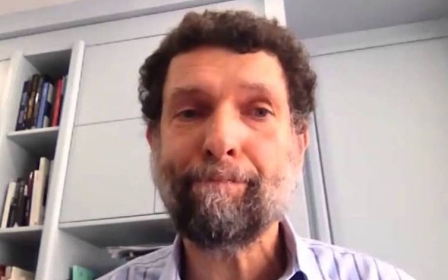Turkey prosecutor calls for terror conviction for senior Amnesty representative

Prosecutors called on Wednesday for Amnesty International's Turkey honorary chair to be convicted of membership of a terror group, meaning up to 15 years in prison, in a trial labelled as "absurd" by the human rights group.
Taner Kilic is accused of having links to the US-based preacher Fethullah Gulen whom Turkey blames for a failed coup in 2016. He had spent more than a year in pre-trial detention before being released in August 2018.
Kilic is on trial with 10 other human rights activists, arrested in 2017 after holding a workshop on an island off Istanbul, the AFP news agency reported.
The state prosecutor called for five of them, including Amnesty's former country director Idil Eser, to be sentenced on the lesser charge of "aiding a terror group without being a member".
The remaining five should be acquitted, the prosecutor said, including German citizen Peter Frank Steudtner and Swedish citizen Ali Gharavi.
New MEE newsletter: Jerusalem Dispatch
Sign up to get the latest insights and analysis on Israel-Palestine, alongside Turkey Unpacked and other MEE newsletters
The central piece of evidence against Kilic was that he had an encrypted messaging application on his phone called ByLock, which Ankara claims was especially created for Gulen supporters.
A police report released a year after his arrest found that Kilic did not have the application on his phone.
In a statement, Amnesty's secretary general Kumi Naidoo said the prosecution had failed to present any credible evidence to substantiate the "absurd" charges against Kilic.
"The egregious injustice that our colleagues and friends have experienced for more than two years is common to hundreds of human rights defenders in Turkey who spend their days either languishing in jail or living in constant fear of prosecution," Naidoo said.
Tens of thousands were jailed and more than 100,000 people lost their jobs under a two-year state of emergency that followed the failed coup in 2016, a crackdown which critics say went far beyond Gulen's movement.
Middle East Eye delivers independent and unrivalled coverage and analysis of the Middle East, North Africa and beyond. To learn more about republishing this content and the associated fees, please fill out this form. More about MEE can be found here.




